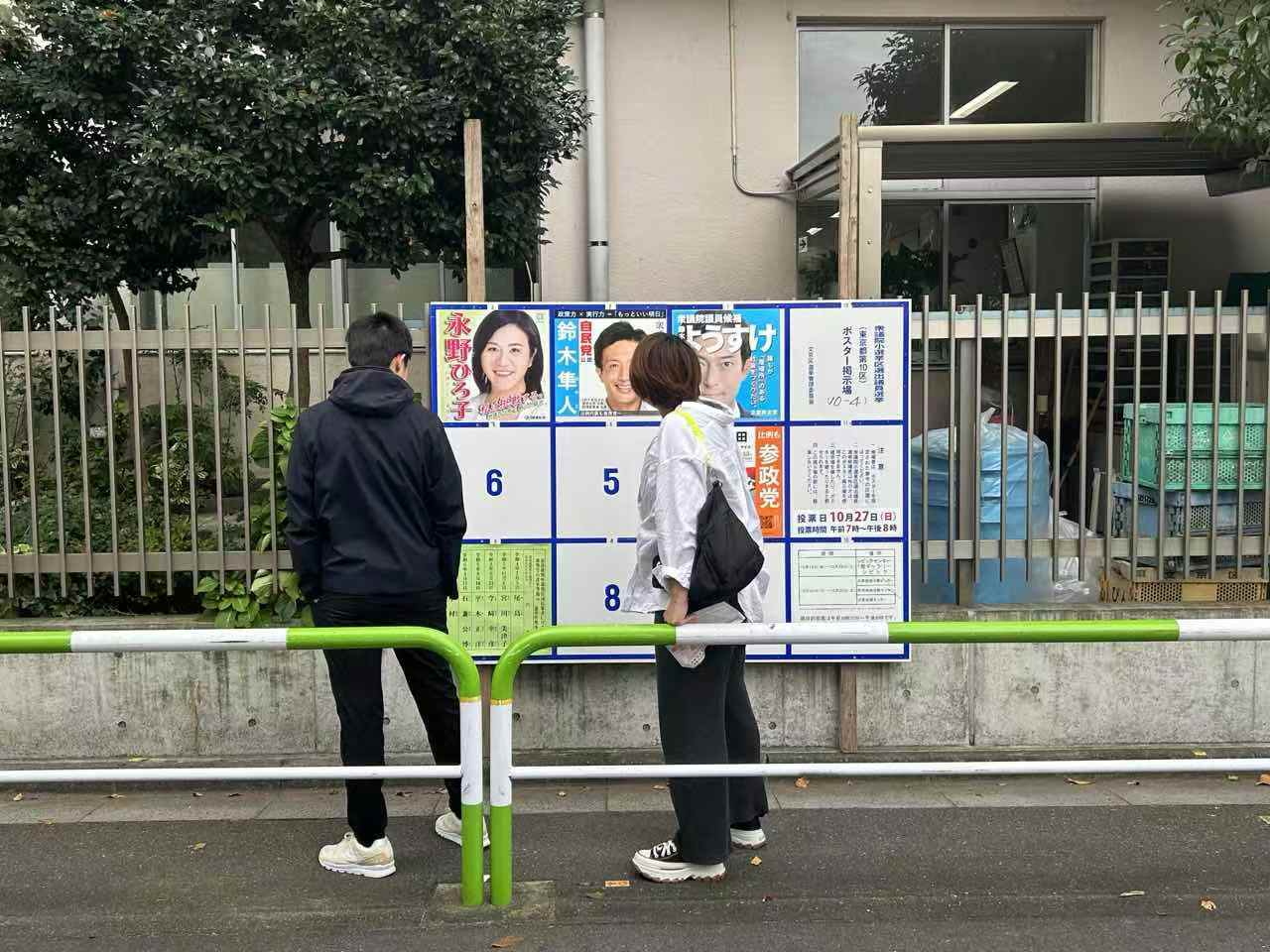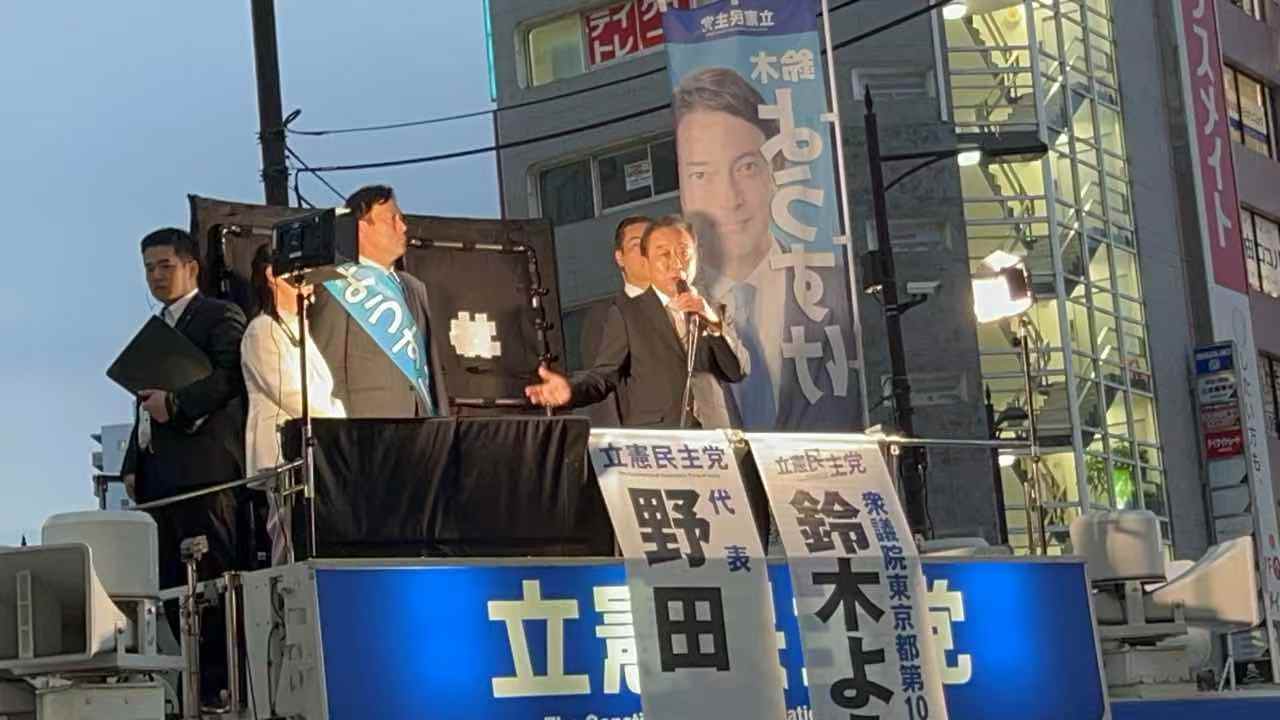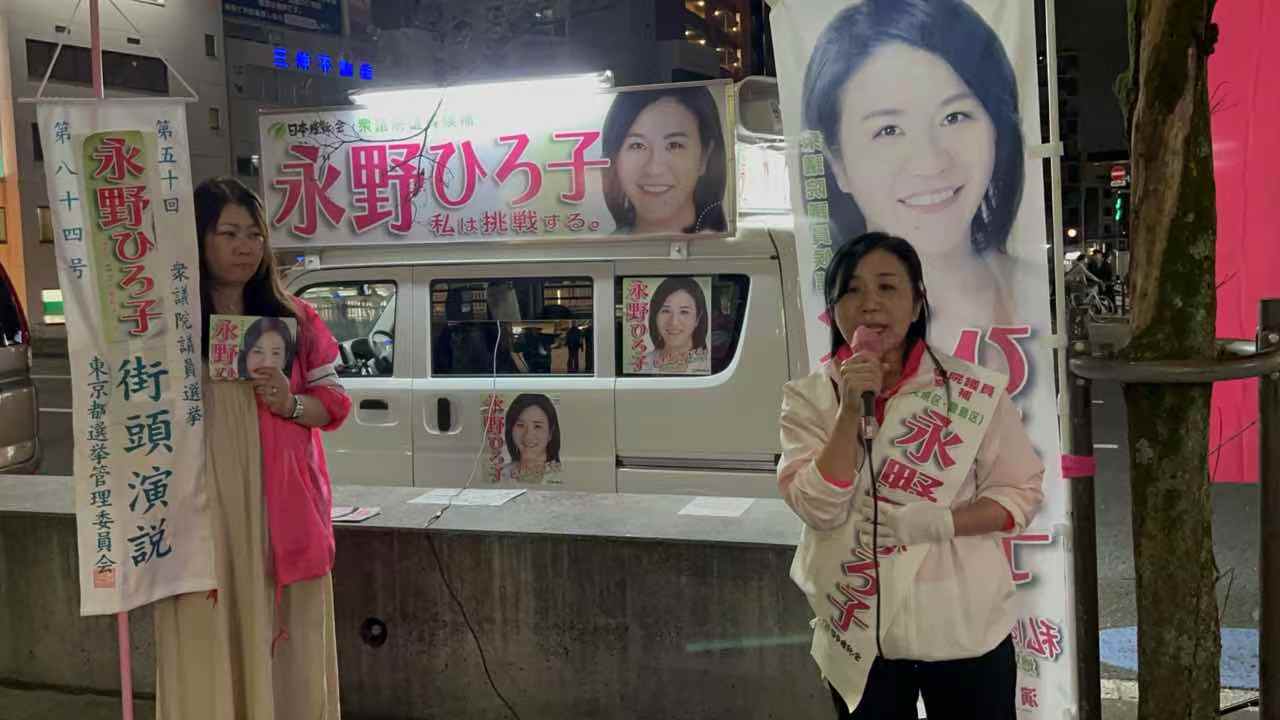
Voting began on Sunday for Japan’s House of Representatives election, with a strong focus on whether the ruling Liberal Democratic Party and its coalition partner, Komeito, can retain their majority in the lower house amid public distrust following a major slush fund scandal.
Preliminary results are expected between late Sunday night and early Monday morning. As of 4 pm on Sunday, the Ministry of Internal Affairs announced that the interim voter turnout stood at 24.32 percent, down 2.46 percentage points from the turnout at the same time in the previous lower house election in 2021.
In this election, 1,344 candidates are competing — an increase of 293 from 2021 — for a total of 465 seats, with 289 in single-member districts and 176 through proportional representation. Before the election, the ruling coalition held a combined 279 seats, with 247 held by the LDP and 32 by Komeito.
“The question is what comes after that,” said Izuru Makihara, professor at the Research Center for Advanced Science and Technology at the University of Tokyo. He noted that certain forms of cooperation could emerge between the LDP and opposition parties.
ALSO READ: Kyodo: Senior Japan ruling party member suggests early elections
“The question remains whether Prime Minister (Shigeru) Ishiba is able to muddle through step by step. It will be something to watch closely,” Makihara added.
In a high-burden society, public criticism of political funding issues has intensified. Following the rise in the consumption tax rate to 10 percent and the introduction of the invoice tax filing system, taxpayers — who are required to diligently collect and report receipts — are increasingly frustrated by the leeway granted to politicians. Consequently, there is a rising demand for transparency in political finances, said Makihara.
“There’s a growing sense of egalitarianism that does not condone political privilege and a strong pursuit for fairness,” he said, predicting that the issue of political reform will reemerge in upcoming debates.

During a speech on Saturday in front of Tokyo’s bustling Ikebukuro Station, Yoshihiko Noda, leader of the Constitutional Democratic Party of Japan, said, “Will we continue with dark money politics, or will we end it? That’s what this election is about.”
According to Noda, the issue of “dark money” represents more than political reform; it’s about taking the first step toward changing how funds are handled in Japanese politics. He warned that a system that favors a privileged elite leads to reliance on specific groups or individuals, generating debts and pushing those in power to cling tightly to it. This results in an unfair, inefficient allocation of funds, which ultimately contributes to national decline.
READ MORE: Japanese PM denies LDP backing scandal-tainted members in general election
The CDP has committed to abolishing corporate and organizational donations, making tuition at national and public universities free, and implementing a consumption tax refund system for low-income households. However, both the CDP and the LDP face challenges in maintaining internal governance without such political funds, Makihara observed, adding that how to build internal governance is now a pressing issue for both the ruling and opposition parties.
In a statement on Sunday, the LDP acknowledged the pressing challenges Japan faces in areas such as the economy, security, and population decline, reaffirming its commitment to achieving national revitalization.

On the final day of campaigning, Ishiba, serving as LDP president, focused on speeches across seven Tokyo locations where LDP candidates face strong competition from opposition parties. He emphasized that the LDP-Komeito coalition could not entrust the country to those lacking a clear vision for Japan’s future. Addressing the LDP’s political funding controversies, he said the party deeply reflect on this, sincerely apologize, and humbly ask for voters’ support.
Late in the campaign, a controversy arose over the LDP’s decision to allocate 20 million yen ($131,334) in operational expenses to the branches of candidates who were not officially endorsed due to political funding issues. However, Ishiba did not address this matter in his closing remarks in Koto Ward.
On Sunday, the Japan Innovation Party released a statement calling for an end to money-in-politics issues and reforms in social security, education, and regulations to eliminate generational disparities. Speaking in Sakai, Osaka Prefecture, on Saturday, Nobuyuki Baba, the party’s leader, stressed the need for a party that could give the LDP a wake-up call, tightening its lax discipline regarding political funding issues.


